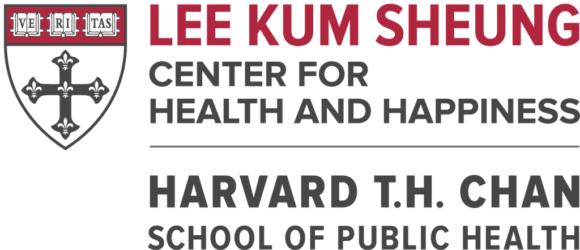LAST UPDATED JULY 2022
Please note that the measures linked to here were not created by and are not the property of the Lee Kum Sheung Center for Health and Happiness. If you are interested in using the measures, please contact the researchers who developed them.
Well-Being:
The World Health Organization’s definition of health clearly underscores the importance of well-being: “Health is a state of complete physical, mental and social well-being and not merely the absence of disease or infirmity.” Well-being is a broad construct that encompasses multiple dimensions, which can essentially be divided into two large domains: objective and subjective well-being. As a result, various scales and indices have been developed to measure both domains.
Resilience:
Resilience is a construct related to, but distinct from, subjective well-being. For more information on resilience, visit our Resilience Resources page.
Other Resources:
Book: “Measuring Well-Being: Interdisciplinary Perspectives from the Social Sciences and the Humanities” Edited by Center Co-Director Dr. Laura Kubzansky & Drs. Matthew Lee & Tyler VanderWeele from Harvard’s Human Flourishing Program & published April, 2021 by Oxford University Press. This volume is available as an open-access e-book. See Ch. 17 for recommendations on well-being measures.
Perspective of the Lee Kum Sheung Center for Health and Happiness
As part of the Center’s mission, one goal is to examine the relationship between psychological well-being and physical health. Although the measures of objective well-being described above are informative, they are not optimally tailored for scientific research that seeks to understand the complex interplay between psychosocial determinants and physical health/decline. Therefore, we are interested in identifying which aspects of subjective well-being may serve as health assets and contribute to attaining and maintaining physical health. Distinct theoretical dimensions have been proposed to characterize subjective well-being research thus far: eudaimonic well-being (e.g., finding meaning in life, experiencing a sense of personal growth, being autonomous in one’s own decisions and behaviors), hedonic well-being (e.g., feeling happy, being satisfied with its own life), as well as others (e.g., optimism).
We have conducted a review of the scales that have been used in the scientific research to determine whether subjective well-being is associated with future physical health outcomes, including health behaviors, biological markers and development of chronic diseases over time, among individuals who are initially disease-free. In this review, we excluded dimensions of subjective well-being that have not been linked with physical health in existing empirical research.
Worth noting, psychological factors such as subjective well-being are likely to affect health differently among healthy population versus individuals with a medical condition. In general, the available measures either focus on one or several dimension(s) of subjective well-being. One conclusion that stems from conducting this literature review is that numerous scales measuring well-being exist and have been used in studies considering physical health as an outcome. Consequently, one of the challenges researchers working in this domain face pertains to whether some scales are more theoretically grounded than others, and which one(s) should be favored in which contexts (e.g., as a determinant of health behaviors, chronic disease or mortality).

